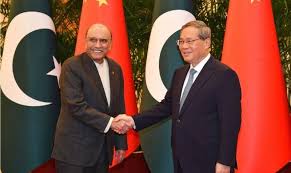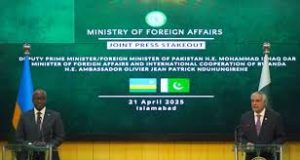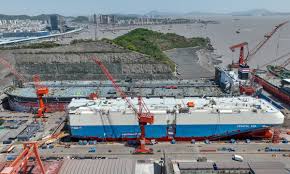Italy: Meloni admits she hoped to do ‘better’ on migration as numbers skyrocket
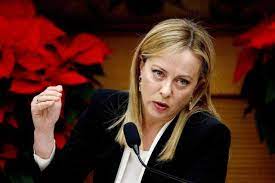
Rome: When the Italian Prime Minister’s far-right party was elected last year, they promised to reduce mass immigration to the country – but the number of people arriving on boats from North Africa has nearly doubled in just one year.
Italian Prime Minister Giorgia Meloni has admitted she had hoped to do “better” to control irregular immigration, something which has significantly increased since her far-right party’s historic election victory a year ago.
“It’s clear that we hoped for better in terms of immigration when we have worked so hard,” she told Italian channel TG1, adding, “the results are not what we hoped for. It is certainly a very complex problem, but I am sure we will get to the bottom of it”.
Meloni’s so-called post-fascist Brothers of Italy party was elected largely on a promise to reduce mass immigration to Italy.
However, the number of arrivals on boats from North Africa has increased, with more than 130,000 migrants registered by the Interior Ministry so far this year, compared to 70,000 for the same period in 2022.
Earlier this month, some 8,500 people arrived on the small island of Lampedusa in just three days.
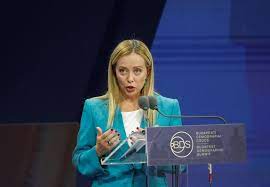
Following that, Meloni called on the European Union to do more to help relieve the pressure.
Brussels did agree to step up their efforts and announced earlier this week that it would start releasing money to Tunisia – where many boats leave from – as part of a pact to stem irregular migration from from the country.
Meloni’s main coalition partner, Deputy Prime Minister Matteo Salvini, of the anti-immigration League party, rejected efforts made by the EU to manage the influx of arrivals calling them an “act of war”.
The League also condemned the German government this weekend for funding an NGO carrying out sea rescues in the Mediterranean, saying it represented “very serious interference” in Italian affairs.
Salvini, who closed Italian ports to migrant rescue ships when he was in government in 2019, is pushing for a tougher approach.
Since coming to power, Meloni’s government has restricted the activities of rescue ships, which it accuses of encouraging migrants, while pledging to crack down on smugglers.
Salvini has also sought to promote the repatriation of migrants ineligible for asylum, specifically by building new detention centres and extending the duration of detention within them.
They have also this week published a decree saying that migrants awaiting an asylum decision will have to pay a deposit of €5,000 – or risk being sent to a detention centre.
None of these moves have been popular with Italy’s centre-left Democratic Party.
In a memo earlier this week, they said: “On immigration, the Italian right has failed… It continues on a demagogic and consciously cynical path, but above all totally ineffective both in respecting and safeguarding human rights and in protecting Italy’s interests”.

